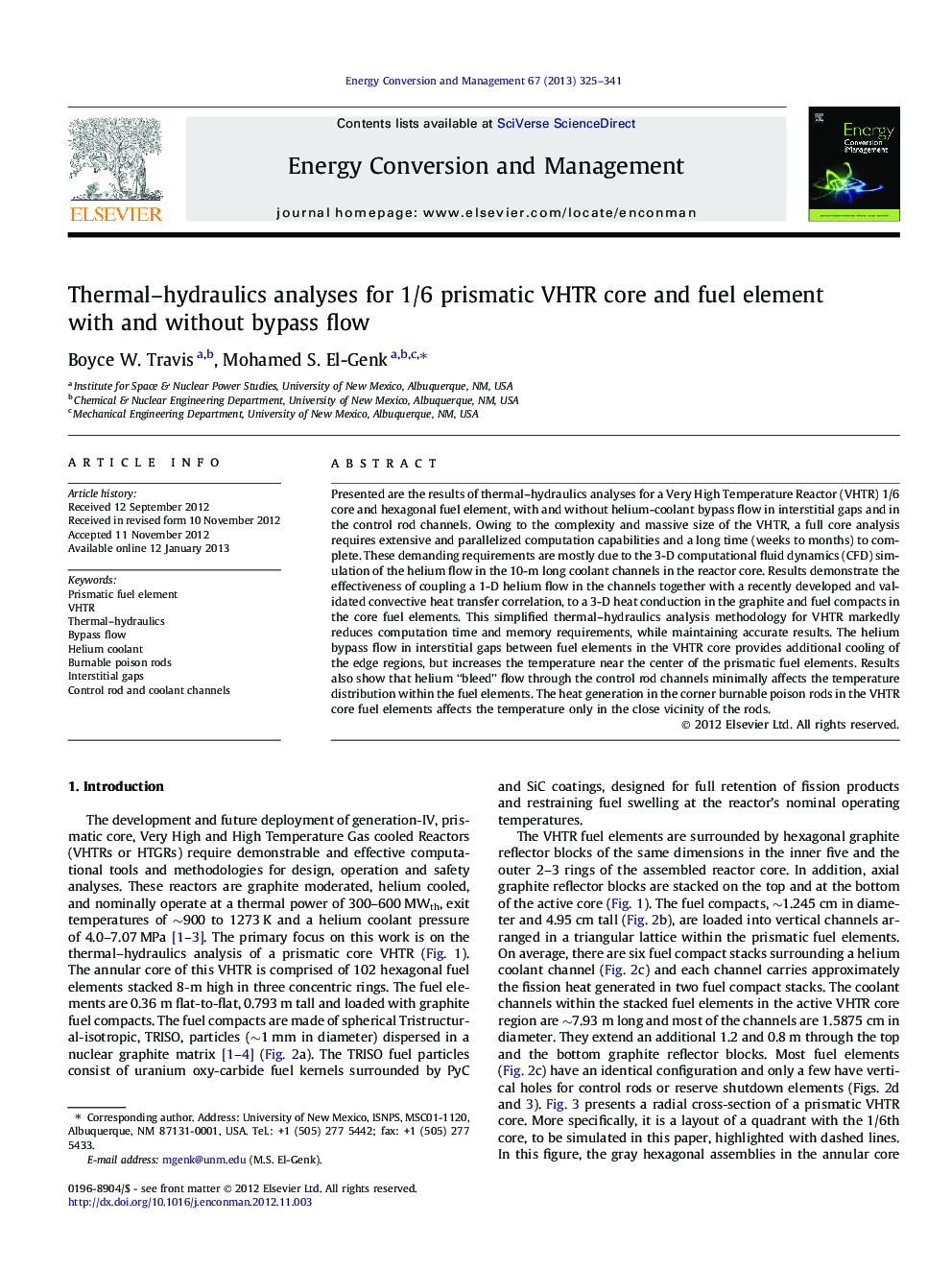| Article ID | Journal | Published Year | Pages | File Type |
|---|---|---|---|---|
| 765745 | Energy Conversion and Management | 2013 | 17 Pages |
Presented are the results of thermal–hydraulics analyses for a Very High Temperature Reactor (VHTR) 1/6 core and hexagonal fuel element, with and without helium-coolant bypass flow in interstitial gaps and in the control rod channels. Owing to the complexity and massive size of the VHTR, a full core analysis requires extensive and parallelized computation capabilities and a long time (weeks to months) to complete. These demanding requirements are mostly due to the 3-D computational fluid dynamics (CFD) simulation of the helium flow in the 10-m long coolant channels in the reactor core. Results demonstrate the effectiveness of coupling a 1-D helium flow in the channels together with a recently developed and validated convective heat transfer correlation, to a 3-D heat conduction in the graphite and fuel compacts in the core fuel elements. This simplified thermal–hydraulics analysis methodology for VHTR markedly reduces computation time and memory requirements, while maintaining accurate results. The helium bypass flow in interstitial gaps between fuel elements in the VHTR core provides additional cooling of the edge regions, but increases the temperature near the center of the prismatic fuel elements. Results also show that helium “bleed” flow through the control rod channels minimally affects the temperature distribution within the fuel elements. The heat generation in the corner burnable poison rods in the VHTR core fuel elements affects the temperature only in the close vicinity of the rods.
► Developed effective methodology for thermal–hydraulics analyses of VHTRs. ► Methodology reduces numerical grid size and computation time, without affecting accuracy of results. ► Demonstrated effectiveness of simplified methodology for thermal–hydraulics analysis of a 1/6 VHTR core. ► Helium bypass flow cools edges, but raises temperatures in center of fuel elements.
